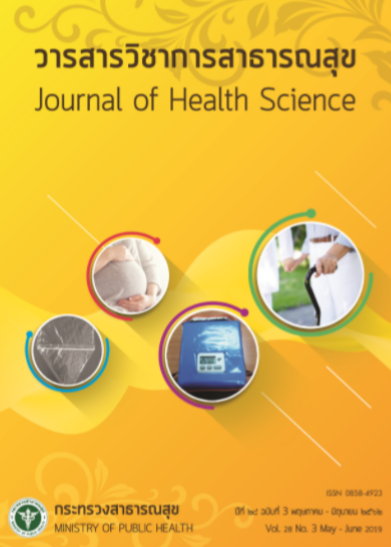Behavior for Vegetable Consumer to the Risk of Pesticide Toxicity Effects on Health Impacts in Adult People
Keywords:
consumption behavior, cholinesterase enzyme, fresh vegetable, health problem, pesticideAbstract
Pesticides have been used worldwide for agriculture work. As a result, pesticide residues in fruits and vegetables are gradually toxic to people who consume them, causing adverse health outcomes to the consumers particularly those who have non-communicable diseases. The objectives of this study were to assess the level of pesticide residues in vegetables among the markets in Chonburi Provinces; and to study the behaviors of adults with regard to the consumption of fresh fruits and vegetables and the correlation with cholinesterase activity, and assess the health impact. The data were collected by questionnaire interview of 47 adult people (25-60 years of age) who consumed approximately 1 kg/day of fresh fruits and vegetables in the area of Chonburi Province. Health checkup and laboratory diagnosis of blood samples were performed. Data analysis was done by one-way ANOVA at statistical significance of 0.05. The study revealed that 60% of consumers were at moderate risk. There was no significant different in serum cholinesterase activity among the samples with different risk levels. In contrast, the trend of blood pressure level and the total cholesterol were associated with the risk consumption behaviors. The research data indicated the need to promote healthy consumption behaviors in order to reduce the risk of toxicity from pesticide residues in fresh vegetables and fruits; and thus reduce the risk and the severity of related illnesses in the consumers.
Downloads
Downloads
Published
How to Cite
Issue
Section
License
Copyright (c) 2019 Journal of Health Science - วารสารวิชาการสาธารณสุข

This work is licensed under a Creative Commons Attribution-NonCommercial-NoDerivatives 4.0 International License.







